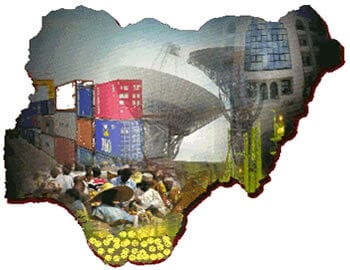The Chairman, Federal Inland Revenue Services (FIRS), Mr Babatunde Fowler, has said that automation and technology in tax payment systems is helping Nigeria build sustainable economic growth.
Fowler, who was represented by Mr Abolade Kehinde, a Deputy Director, (FIRS) spoke at the maiden edition of the Nigeria Corporate Services Conference organised by TenticP Communications, which took place in Lagos last week, where many other stakeholders in the Information and Communications Technology (ICT), Banking and other sectors spoke on the state of the economy.
In a paper entitled Due diligence, Best Practices in Revenue Generation,” Fowler observed that state governments across the country need money to finance their expenditure, which includes infrastructure and social services, and that such money is generated through major ways of taxation and borrowing. He, however, argued that generally, taxation is deemed preferable to borrowing as debt has to be repaid usually with interest and other debt servicing obligations which can sometimes create additional burden on government.
“Things like the e-receipts, e-tax clearance certificates and the automated VAT collection that we want to do in key sectors will help build sustainable economic growth. Already, states like Lagos, Kano, Edo, Kaduna and Akwa-Ibom are doing very well business wise because of internally generated revenue from tax proceeds and we can see how well businesses are doing in those states in the ease of doing business ranking,” Fowler said.
In another keynote address entitled, “Ethics, the Backbone of Quality Corporate Services for Economic Growth,” Mr Muda Yusuf, Director General, Lagos Chamber of Commerce and Industry said the conference was timely, because given the structure of the Nigerian economy, at no other time is the conversation on quality corporate services delivery in private and public sectors more appropriate than now as the country works to transform the economy from being resource-based to a knowledge-based, innovation and technology-driven economy for the good of all.
Also, Mr Isa Ali Pantami, the Director-General, National Information Technology Development Agency (NITDA), who was represented by Jimoh Falilat Olaitan during the panel session, said the government agency was focused on using ICT which is a major contributor to Nigeria’s GDP, to ensure sustainable economic growth.
“NITDA developed a strategic roadmap for the ICT sector that is aimed at transforming Nigeria into a knowledge-based society. The seven key pillars of our roadmap are IT regulation, capacity building, digital inclusion, digital job creation, government digital service promotion, local content development and promotion and cyber security. With investment and concentration in these areas, especially at a time when there is digital revolution, the country is bound to see sustainable economic growth,” he said.
Earlier, in his opening remarks, Chairman of the occasion, Mr Abdulfatai Olayinka Olajide welcomed all to the event, saying the conference couldn’t have come at a better time especially taking into consideration that most times, consumers are not taken serious in decisions taken by organisations, citing what currently obtains at the power sector as an instance.
Convener of the Conference, TenticP Communications Nigeria Limited, through its Managing Director/Lead Strategist, Nahimah Ajakanle-Nurudeen, in her Welcome Address noted that the Nigeria Corporate Services Conference is projected to be an annual event aimed at driving best practices and innovations in the delivery of quality corporate services by businesses, organisations, entrepreneurs, and government agencies in Nigeria. It’s a platform designed to enhance business and economic growth, through promotion of best practices and due diligence for sustainable development in Nigeria.
She said that the conference theme: “Building a sustainable economic growth through quality corporate services delivery” was picked because of its relevance to the country’s contemporary economic development at a time when observing global best practices, due diligence, business ethics and corporate governance are being amplified by stakeholders in both public and private sectors.




